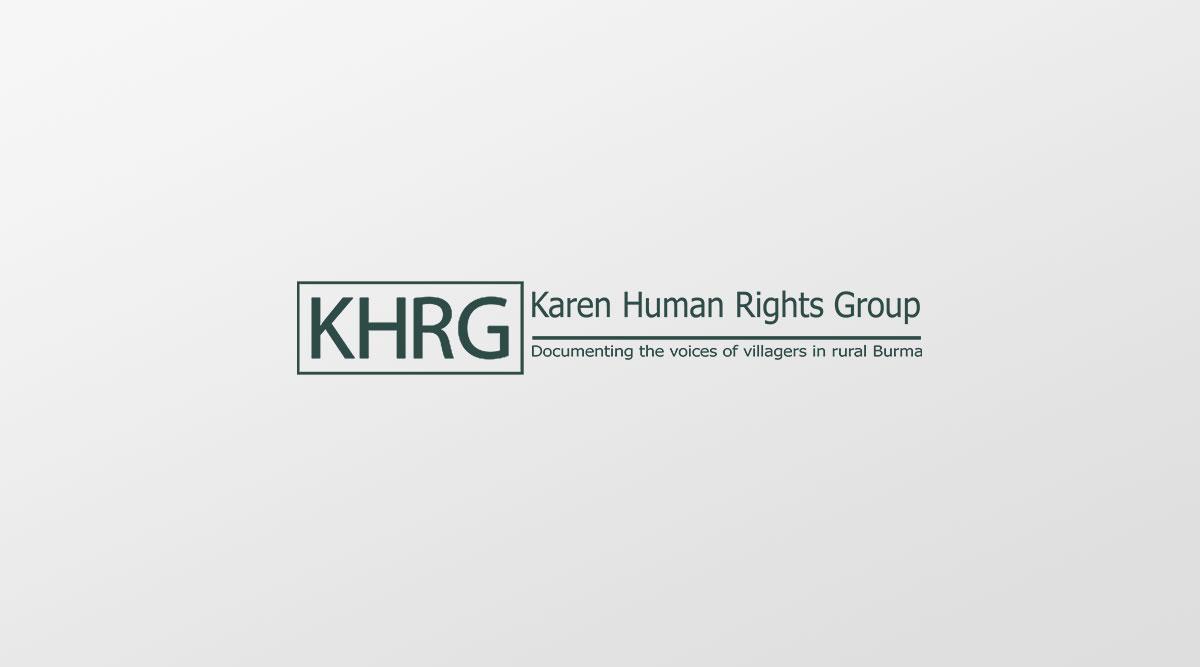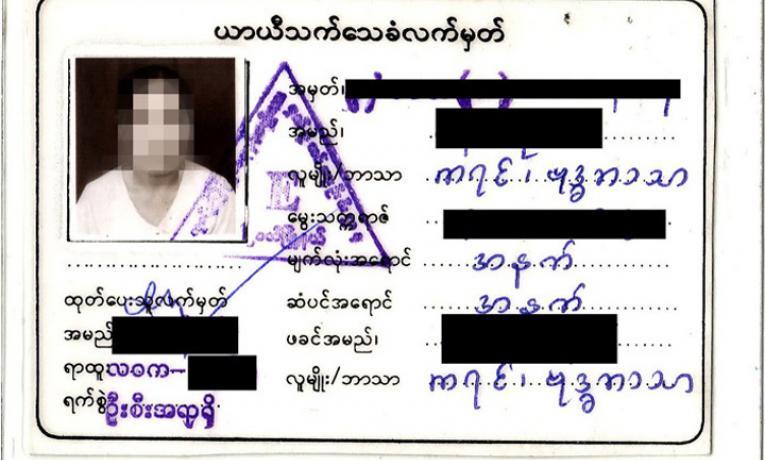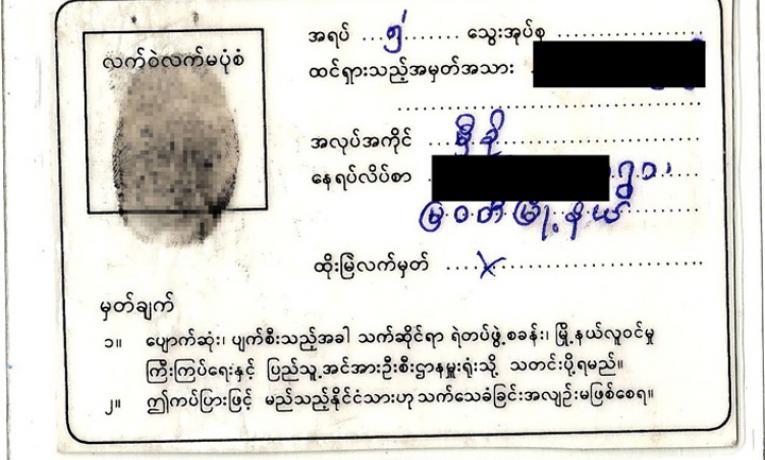While Cyclone Nargis has wrought massive damage upon large areas of south and southeast Burma, the SPDC remains adamant that it will press ahead with its planned constitutional referendum. Karen State has been identified as an area affected by the cyclone, yet local SPDC authorities are continuing to pressure villagers into voting 'yes' in favour of the military-engineered constitution. Statements by villagers, quoted at length in this report, regarding military coercion, forced participation in the referendum and obligatory 'yes' votes challenge any claims that this process is at all 'free and fair'.
Despite the large-scale devastation caused by Cyclone Nargis which hit Burma last weekend, leaving huge swathes of land inundated with water, an estimated 22,464 people dead and 41,054 missing, and hundreds of thousands of people in need of urgent humanitarian assistance[1], the country's ruling military generals are pushing forward with the constitutional referendum to be held this weekend, on Saturday May 10th, in all areas except the 47 townships 'hardest hit' by the cyclone in Rangoon and Irrawaddy Divisions, where the vote has been delayed two weeks until May 24th.[2] For villagers in Karen State, which has also been identified as an area affected by the cyclone[3], this means there are just a few days left before they are expected to vote in the military-controlled referendum. KHRG previously reported on April 24th Karen villagers' statements that they had been forcibly registered and issued with temporary identification cards for the referendum and threatened with punishments if they failed to register or vote and were furthermore very sceptical that they would be allowed to vote freely.[4] Now, however, it seems that some villagers are also being forced by local SPDC authorities to cast a 'yes' vote prior to the official referendum date. Moreover, neither those who have already been forced to vote nor those yet to cast their vote have been given any information on the constitution or the meaning of their vote and have definitely not seen copies of the draft constitution. Karen villagers also have little access to media sources that might allow them to derive such information.
In the following quote, Naw M--- of H--- village in T'Nay Hsah township of Pa'an District described to a KHRG researcher last week how SPDC authorities have forced the villagers in her village to register for the referendum and pay for the temporary identification card which will allow them to vote. She also explained how these authorities have threatened the villagers with punishment if they do not vote:
"If we are not involved in the voting, [the SPDC have told us] our children will not be able to attend school and we will have to leave H--- village. For example, the villagers who went to work in Bangkok have to come back and vote. If they don't come and vote they can't come back and live in their village anymore. They will have to go and stay in Mae La [refugee] camp. We are afraid of them [local SPDC authorities] so we have to vote. The young people aged 18 and above have to vote. We have to pay 3,500 kyat for the [temporary] identification card. We have to vote – if we don't, they will mark all of our registration lists in their office [for future punishment or fine]. [The SPDC told us] we will have to change our identification card [to a permanent card] next year. We don't know how much it will cost again. We heard that the people in the city don't need to pay for the card. We have no chance to listen to the radio. If we really want to listen to it, we have to listen secretly. Some people in the village didn't have their photo taken for the identification card. For the people who have an identification card, they all have to vote. If we don't vote they will record our name. Even if we are sick we have to go to vote."
It seems, however, that SPDC authorities have been dealing with different villages in different ways and in some cases taking an even more forceful approach, as indicated in the following quote. Saw H---, a 30-year-old villager from Ht--- village in T'Nay Hsah township where SPDC control is still occasionally contested by Karen National Liberation Army (KNLA) forces, reported to KHRG that villagers in his village had been forced to vote prior to the official referendum date with SPDC officials even forcing villagers' hands as they completed their ballot paper ensuring that all the villagers cast a 'yes' vote.
"In the first week of April, the SPDC local authorities started to make temporary ID cards for the people who didn't have an ID card yet. For the people who already have an ID card, they didn't need to do it [to participate in the process for getting a new ID card]. They said that this temporary card will be useful for the future [and] if you didn't have this card you couldn't stay in the village, because you aren't the nationality here [of Burmese nationality]. Also, the temporary ID card cannot be used for travelling, because one of my friends from the village wanted to go to Kawkareik town and when he arrived at the check point the soldiers asked him for his ID and he showed the temporary ID card, but the soldiers said he couldn't use [that card] for travelling, so the soldiers tore up his temporary ID card. On April 26th or 27th, the SPDC authorities came to meet with the village head. After that they met with the villagers about the referendum. They ordered the villagers to vote. The people who have reached age 18 had to vote. They [SPDC] said that people have to agree with the constitution and vote ['yes']. People who don't vote and agree with the constitution cannot live in the village, so they have to leave the country and live in other countries. And also, [the SPDC threatened us] for the people who don't agree with the constitution, they will have to pay a fine of 300,000 kyat and will be jailed for 7 years. There are 144 people in the village and all of them had to agree [to the constitution] with their vote. When I went to vote they [SPDC officials] held our hand and ordered us to write down on the paper that we agreed [with the constitution]. They didn't even tell us about what the constitution says and what information is in it. But I know and hear that the constitution is not good for us and even if the military government wins, there will be no peace for us. But if we don't agree with it, we dare not stay, because they will give us trouble."
Furthermore, it seems that the case of forced voting above is far from an isolated case, with the exiled Burmese media reporting that military officials have continued to pressure villagers in rural areas to vote 'yes' in the referendum[5] and reports of pre-marked ballot papers being issued to many of the thousands of voters who were 'invited' to submit advanced votes in Myawaddy township of Karen State. One voter reported being given a ballot paper already marked with a tick signifying a 'yes' vote, eliminating his option of marking an 'X' for 'no', and was quoted as saying "I was given the ballot already marked – my duty was just to put it in the ballot box." Meanwhile civil servants have been threatened that they will lose their positions, if either they or their family members vote 'no'.[6]
On top of such forced registration and forced voting, Saw H--- also reported that Cyclone Nargis had caused severe weather conditions in T'Nay Hsah township, with trees having been uprooted in the forest close to his village. As maps of the cyclone path also show that the cyclone would have passed through Karen State[7] and as Karen State is one of the five officially declared 'disaster zones'[8], the impact of the cyclone in Karen State also deserves investigation by international agencies delivering humanitarian assistance to the cyclone victims. However, it seems unlikely that the SPDC will change their policy on allowing humanitarian workers to access Karen areas, with SPDC official Gen. Tha Aye quoted on State television on Wednesday reassuring people that the situation in certain areas of Karen State hit by the cyclone was "returning to normal".[9] It seems that Karen villagers will be expected to vote whatever new hardships they are facing.
Footnotes:
[1] United Nations Office for the Coordination of Humanitarian Affairs (OCHA), "Myanmar: Cyclone Nargis OCHA Situation Report No. 3", May 6th 2008. Accessed at http://www.reliefweb.int/rw/rwb.nsf/db900SID/MUMA-7EE2ET?OpenDocument on May 7th 2008.
[2] "Relief Effort Should be Burma's No 1 Priority", The Irrawaddy, May 6th 2008. Accessed at http://www.irrawaddy.org/opinion_story.php?art_id=11792 on May 7th 2008.
[3] "Estimated Total Population Living Within Flood-Affected Areas," UNOSAT, May 7th 2008. Accessed at http://news.bbc.co.uk/2/shared/bsp/hi/pdfs/06_05_08_unosat_myanmar.pdf on May 8th 2008.
[4] For further information see Just another case of coercion and forced labour? Karen villagers' statements on the 2008 referendum, KHRG, April 2008.
[5] "Relief Effort Should be Burma's No 1 Priority", The Irrawaddy, May 6th 2008. Accessed at http://www.irrawaddy.org/opinion_story.php?art_id=11792 on May 7th 2008.
[6] "Pre-marked Ballots Issued in Burmese Referendum", The Irrawaddy, April 30th 2008. Accessed at http://www.irrawaddy.org/article.php?art_id=11683 on May 7th 2008.
[7] "Areas Affected by Cyclone Nargis," The Irrawaddy, May 8th 2008. Accessed at http://www.irrawaddy.org/web_images/map_affected.jpg on May 8th 2008; "Estimated Total Population Living Within Flood-Affected Areas," UNOSAT, May 7th 2008. Accessed at http://news.bbc.co.uk/2/shared/bsp/hi/pdfs/06_05_08_unosat_myanmar.pdf on May 8th 2008.
[8] "Myanmar: Cyclone Nargis Update", Union Aid Abroad – Australian People for Health, Education and Development Abroad (APHEDA), May 6th 2008. Accessed at http://www.reliefweb.int/rw/RWB.NSF/db900SID/SKAI-7EDRQX?OpenDocument on May 7th 2008.
[9] "Burma a 'major disaster' after cyclone: UN officials", The Associated Press, May 7th 2008. Accessed at http://www.ctv.ca/servlet/ArticleNews/story/CTVNews/20080506/burma_disaster_080507/20080507?hub=World on May 7th 2008.






